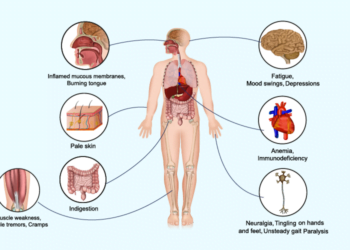
Brexit Secretary David Davis gave evidence to parliamentary committee Wednesday, with the future of the Northern Ireland border and the increasingly fractious debate over whether the U.K. should remain in a customs union with the European Union taking center stage.
Prime Minister Theresa May’s so-called Brexit war cabinet is also meeting this afternoon. She’s under growing pressure to stay in the customs union, with business and probably a majority of Parliament in favor. The question is how the pro-Brexit members of Cabinet will respond if she does — so far at least, none has publicly threatened to resign.
Table of Contents
ToggleVaradkar Wants Progress on Border by June (1:50 p.m.)
Irish Prime Minister Leo Varadkar tells parliament “sufficient and substantial” progress on the border issue is needed by the time European leaders gather in June, though he declines to tip his negotiating hand by detailing what might happen if that deadline wasn’t met.
He again rejects the idea that technology could solve the border question, saying the solution to keeping the border open must be “political and legal.”
As yet, the U.K. has yet to proffer an alternative to the EU’s backstop option, which would effectively keep Northern Ireland in the customs union and part of the single market, he says, though he welcomes reports that the U.K. was working on something.
Davis: Negotiations on ‘Full Alignment’ (10:49 a.m.)
Davis revealed there’s an argument going on between negotiators over what the Irish “backstop” plan should require. The EU wants “harmonization” of Northern Ireland’s trade rules with those of the EU — meaning that the same rules should apply on both sides of the Irish border, effectively staying in the single market, Davis says.
But the U.K. wants alignment to mean only that the “outcomes” on both sides of the border are the same, even if the rules are different.
“There is a difference which we will no doubt negotiate out over the next month or two.”
Davis also says the U.K. will not water down standards on animal welfare or animal health after Brexit, even if it adopts different rules.
Davis Calls Ireland Backstop ‘Reserve Parachute’ (10:23 a.m.)
Davis calls the EU’s backstop solution for the Northern Ireland border (see 10:02 a.m.) as a “reserve parachute” and that “nobody sees that as the most desirable outcome.” He says negotiators are working on new wording for the backstop solution.
The only people who think the EU’s backstop plan is desirable are those “who want to keep us in the single market at any price,” Davis says. He insist that all sides, including the Irish government and the EU, want the same thing — to solve the Irish border by the U.K.’s preferred option of a wide-ranging free trade agreement. “Everybody sees the FTA — option A — as the most desirable outcome.”
Publicly the Irish government agrees with Davis — the best solution would be through the broader trade deal. But some Brexit officials in Dublin and Brussels doubt this is realistic and think the backstop won’t merely be the “reserve parachute” as Davis described it, but the system that comes into operation.
That’s why the EU insists on so much work being put into drafting the backstop plan that it and the Irish government finds acceptable.
Davis on Why New Referendum Would Be Bad Idea (10:20 a.m.)
Davis says that a second referendum on Brexit would weaken the U.K.’s hand by giving the EU the incentive to offer a bad deal.
“I’m not going to speculate on what the government will do in response to an amendment that has not yet been laid, let alone passed, by the House,” he says, when asked if the government would go back to the EU to renegotiate if instructed to by Parliament.
Davis Says October EU Deal Must Be ‘Substantive’ (10:07 a.m.)
Davis says the hardest task facing his team in the autumn is to justify what he has got in return for paying 40 billion pounds to the EU. The agreement on the future relationship with the bloc must be “substantive,” he says.
On the EU side, governments are still discussing whether the deal will be detailed in the way Davis wants, or will be kept vague.
More on Davis’s Comment on Northern Ireland (10:02 a.m.)
Davis suggested the thorny question of how to avoid a hard border in Northern Ireland might still not be resolved when the U.K. leaves the EU next March.
He said a solution for the border won’t really be needed until the end of the transition period on Jan. 1, 2021 because the U.K. will effectively remain inside the EU customs union and single market during this interim phase.
But his comment has dramatic implications for what Brexit might look like. It suggests that the U.K. accepts it may have to agree to an unpalatable backstop plan for keeping Northern Ireland — and possibly the whole U.K. — in many parts of the customs union and single market rules indefinitely.
If an alternative answer can’t be agreed, the U.K. will have to take a leap of faith, leave the EU next March and hope that it can reach a deal on the Irish border before the end of the following year.
Davis Says No Deal With EU on Brexit Is Unlikely (9:57 a.m.)
“The complete absence of any outcome is unlikely,” Davis says. “You might end up with a bare-bones deal — or a whole series of bilateral deals. I don’t think no deal is a significant probability at all.”
Davis Says Huge Advantages Outside Customs Union (9:43 a.m.)
Davis doesn’t say how the government would react if Parliament defeats it on the customs union issue, but he does stick to the long-held line about the advantages for the U.K. of leaving it — ability to negotiate own trade deals etc. He also dismisses the idea that it will be a significant practical impediment to trade.
“If you have no tariffs, if you have no quotas, if you have mutual recognition of standards, why would you have a high friction border?” he asks.
Davis: Ireland Solution Not Needed Until Dec. 2020 (9:35 a.m.)
Davis says that given there’s a transition period agreed with the U.K. in the customs union until Dec. 2020, a final solution for the Northern Ireland border isn’t needed to be fully in place until that period ends.
Does this open the door to the U.K. fully accepting the EU’s default backstop position?
Read more: Why Ireland’s Border Is Brexit’s Intractable Puzzle: QuickTake
Davis Says U.K. to Avoid Hard Border in Ireland (9:32 a.m.)
“Our undertaking is plain,” Davis says. “We will avoid a hard border at all costs. We will underpin the peace process… and we will come up with a mechanism which will enable that to happen at the border.”
Davis says a free trade agreement with the EU would solve a lot of the issues.
Davis Says Lawmakers Will Be Able to Amend Bill (9:29 a.m.)
Davis flicks at the power the U.K. Parliament will have when it gets to vote on the draft Brexit deal that Prime Minister Theresa May secures. “If the house rejects the proposed negotiation then that negotiation will fall,” he says.
But he’s also evasive on how long lawmakers will have to scrutinize the deal. “I don’t know,” he says. The beginning of this hearing is already rather combative.
Read more: Lawmakers Could Still Thwart Brexit When Deal Reaches Parliament
Earlier:
Brexit Bulletin: A Concession and a Nudge
EU Said to Be Ready to Give U.K. a Say on Trade in Customs Union
Brexit-Backer Fox Offers an Argument for Keeping Customs Union
Lords Defeat May Again on Brexit, This Time Over Rights
Coming Up:
Prime Minister’s Questions in Parliament
Theresa May’s Brexit war cabinet meets in Downing Street
source:-bloomberg







